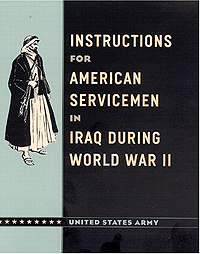Chicago In the News
The Chronicle’s biweekly column Chicago In the News offers a digest of commentary and quotations by a few of the University faculty members, students and alumni who have been headlining the news in recent weeks. Chicago faculty members are some of the most frequently quoted experts, so space allows publishing references to only selected examples. To read many of the full newspaper articles mentioned in this column, visit the In the News column at the University News Office Web site: http://www-news.uchicago.edu/.
Coveted internships
The University’s Jeff Metcalf Fellows Program, administered by Career Advising and Planning Services, was featured in a front-page article published in the Monday, Aug. 6 Chicago Tribune. The University’s Metcalf fellows are supported financially in their 10-week internships, receiving $4,000 in pay. But the coveted internships provide more than financial assistance; students are given opportunities to do substantive work that supplements their studies in a given field. The article featured student Agnieszka Wrobel, who is interning with the Chicago History Museum as a Metcalf fellow this summer. Meredith Daw, Associate Dean of Students in the University and Co-director of CAPS, said: “Employers want to see students in the world of work. It shows that you understand the expectations.” These focused internship experiences benefit students by providing them with career direction for their post-graduation plans. “That’s why this is such a priority for us,” said Daw.
Cell death interruption
James Brorson, Associate Professor in Neurology, and Terry Vanden Hoek, Associate Professor in Medicine and Director of the Emergency Resuscitation Center, were quoted in an article published in the Monday, July 23 issue of Newsweek magazine and on MSNBC.com. The article explored how doctors are treating sudden cardiac arrest and how patients have been revived after their hearts had stopped beating. The article also presented current research that is exploring how cells die from loss of circulation, a process that researchers have found plays out over time. “Half the time in cardiac arrest, we get the heart going again, blood pressure is good, everything is going along, and within a few hours everything crashes and the patient is dead,” said Vanden Hoek. Knowing cell death occurs over time, researchers also believe it might successfully be interrupted. Brorson, who noted that neural cells grown in culture deteriorate in the same slow process when deprived of oxygen, added that the process is analogous to an automobile. “If your car runs out of gas, your engine isn’t destroyed, it just needs fuel.”
‘We knew that . . .’

The University Press made headlines recently after it reprinted a World War II manual titled, Instructions for American Servicemen in Iraq During World War II. The book, written 65 years ago and recently discovered by members of the Press staff in the archives at the Joseph Regenstein Library, has sold out of the Press’ first 12,000 copies, with more printings expected. “They all went out the door,” said Carol Kasper, Marketing Director for the Books Division at the Press, in a Page 1, Tuesday, Aug. 7 Chicago Tribune story. The 44-page book features Arabic words and phrases, information on local customs, culture and etiquette, as well as the country’s geography. “We are bringing it out at a time when people are really disillusioned with the whole handling of the war,” said Kasper. “You look at something like this book and it’s like: ‘we knew that. How did this happen?’ ”
Non-religious doctors care
The results of a study authored by Farr Curlin, Assistant Professor in Medicine, were the subject of an article published in the Tuesday, July 31 Chicago Tribune and the Chicago Sun-Times. The study showed that doctors who were more religious, as measured by ‘intrinsic religiosity,’ and who attend religious services regularly are no more likely to treat underserved patients than less-religious doctors—and are even a little less likely. It also showed that physicians who consider themselves highly spiritual, who feel their spirituality influences their profession or who were raised to provide service to the poor, were more likely to provide care to underserved populations. Overall, 26 percent of respondents said they practiced primarily with underserved patients. “The glass-half-full interpretation is that a substantial minority of physicians across all these groups, most particularly those who are not religious at all, are caring for the poor. Not being religious clearly doesn’t mean that people don’t care about underserved patients,” said Curlin.
Paying poor to improve lives
Jeffrey Grogger, the Irving Harris Professor of Urban Policy in the Harris Graduate School of Public Policy Studies, was quoted in a Tuesday, July 31 Chicago Sun-Times article that reported on the benefits of a program that pays poor individuals for mastering such tasks as paying the rent on time; doing volunteer work; keeping a job over an extended period of time; getting a GED. Responding to program critics, Grogger noted that society also benefits when individuals improve their lives in these ways. “If you ask people the question: should we pay people $600 to graduate high school, that will likely elicit a negative response. If you tell them graduating high school greatly reduces the odds that we’ll spend $35,000 a year down the line for prison, I think the answer would be different.” Evelyn Brodkin, Associate Professor in the School of Social Service Administration, pointed out that such programs ignore the larger causes of poverty. “This assumes they’re poor because of what they’re not doing, rather than acknowledging inequalities based on education, employment and housing.”
Totally endoscopic bypass
Cardiothoracic surgeon Sudhir Srivastava, Assistant Professor in Surgery, was featured in a story that appeared in the India Tribune. Srivastava, who joined the Chicago faculty in July, is a pioneer in the development of minimally invasive and robotic heart surgery. One of two surgeons worldwide to perform totally endoscopic coronary artery bypass surgery, Srivastava’s technique eliminates the need to open the chest and arrest the heart. “The procedure has many advantages compared to traditional coronary artery bypass surgery,” said Srivastava in the India Tribune story. “Patients are usually in and out of the hospital within one to three days. They’re often back to work within a week. Very little blood is required for the surgery. And the pain level is significantly lower.”
Claims on the Arctic

The MV Arctic makes its way through the Northwest Passage in Canada.
Eric Posner, the Kirkland & Ellis Professor in the Law School, wrote an op-ed that was published in the Friday, Aug. 3 Wall Street Journal. Posner, an expert on international law, wrote about Russia and Canada’s recent claims of sovereignty over portions of the Arctic Ocean, including Russia’s claim to an area in the Barents Sea and Canada’s claim to the Northwest Passage. “Control over the seas is determined by two things: power and propinquity. With respect to the Arctic, Russia has both,” wrote Posner. With regard to Canada and the United States, Canada has propinquity, and the United States has power, and the two countries should team up against Russia, he wrote. “If the U.S. supports Canada’s claim to the Northwest Passage, in return for some sort of guarantee of U.S. military and civilian access, the two countries will strengthen their position vis-ˆ-vis Russia. As the world heats up, the two countries need to prepare themselves for the re-emergence of old rivalries, and in the battle over control of the Arctic, the U.S. and Canada are natural allies.”
Freeform for applicants
The Graduate School of Business was featured in several articles published the week of Monday, July 30, after the school announced it would require prospective students to submit slides, such as those created in PowerPoint, as part of their application for enrollment in the GSB. “We wanted to have a freeform space for students to be able to say what they think is important, not always having the school run that dialogue,” said Rose Martinelli in an Associated Press story, which appeared in USA Today. “To me, this is just four pieces of blank paper. You do what you want,” said Martinelli, Associate Dean of Admissions and Financial Aid for the GSB. “It can be a presentation. It can be poetry. It can be anything.” Stories about the new application requirement also appeared in the Chronicle of High Education, the Boston Globe and the Chicago Sun-Times.
![[Chronicle]](/images/sidebar_header_oct06.gif)